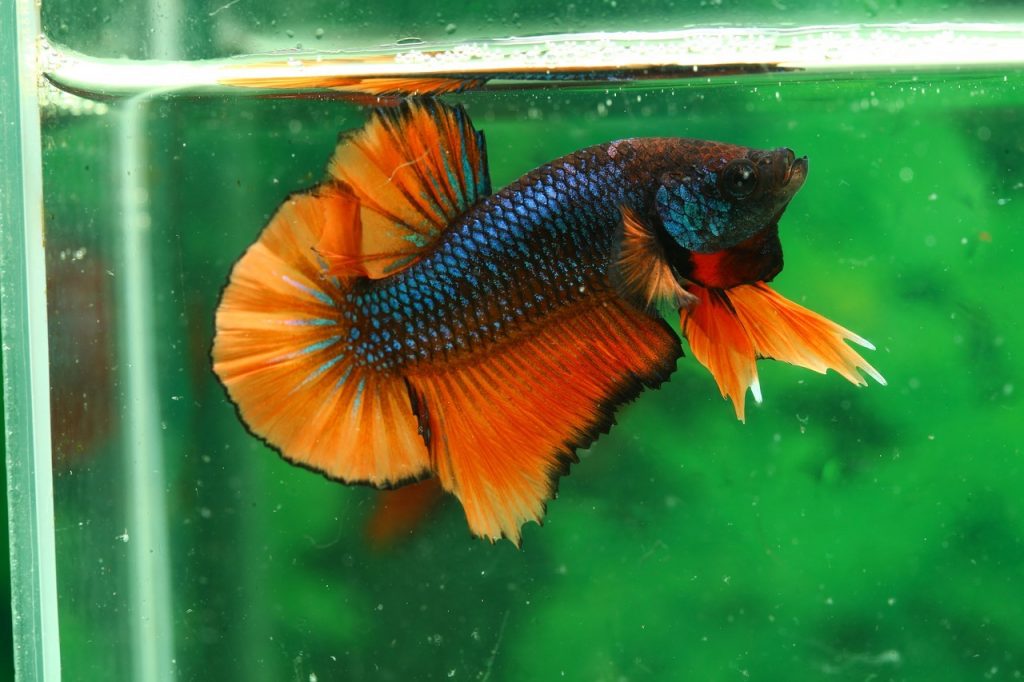
Water added to a fish tank typically needs to be treated before it is safe for fish. Not treating tap water can lead to problems with a fish’s gills or skin, and can even cause death. Chemicals, bacteria, and metals need to be removed. Water conditioner treats water so it is hospitable to fish. Betta fish have unique needs and require water conditioner designed to specifically cater to this particular species.
Betta fish can survive in conditions that most other species of fish cannot. Bettas can handle small tanks, or even bowls, that are not filtered. This is largely due to the fact that Bettas are anabantids, also known as labyrinth fish. Basically, Betta fish have gills like other fish, and can breath under water, but Bettas can also head to the surface and gulp air in order to get oxygen. Bettas also do not like current. They prefer still water. Fish tank filtration systems remove waste from a tank, but as clean water is returned to the aquarium a current is created. Some filters even aerate, or add oxygen, to the water. Aerating the water is necessary for fish that can only get oxygen by breathing through their gills. Since the current is a problem for Bettas and aerating the water is not necessary, some fishkeepers decide not to include a filter on a Betta tank.
Table of Contents
Considerations
It is always important to treat water that is added to a fish tank. If the case of a Betta fish tank, especially one that is not filtered, it is absolutely necessary to treat the water. Betta water conditioner ensures the tank water is safe and that Betta fish will be comfortable and healthy. Some conditioners also include extracts and components that aid in healing and production of healthy slime coats.
Just because Betta fish can survive without a filter does not mean it is always the best decision. It is important to monitor the water conditions and the health and stress level of fish and be prepared to adjust the aquarium setup as necessary. Water quality varies greatly, and it is possible that some aquarium water conditioners will not work with certain types of water. In some instances water may become cloudy, or mineral deposits may form in the tank when certain betta water conditioners are used. It may be necessary to have tap water tested to find the ideal conditioner, or simply switch to another brand if a betta fish water conditioner creates cloudy water or mineral deposits.
Betta Fish Water Conditioner Reviews
- Aqueon Betta Bowl Plus Water Conditioner & De-Chlorinator
Create a safe habitat for Betta fish by using Aqueon Betta Bowl Plus Water Conditioner and Dechlorinator. By neutralizing chlorine, chloramines, ammonia, and heavy metals found in tap water an aquarium can be made safe for both fish and live plants. This water conditioner is designed specifically for smaller aquariums and bowls, such as what is normally used for Betta fish.
When used in a Betta tank this conditioner promotes health, proper color, and maintains natural slime coat protection. As aggressive fish Bettas are prone to abrasions and wounds, which makes a healthy slime coat all the more important.
The packaging of this aquarium water conditioner is flimsy. The cap does not always secure tightly to the bottle. This can lead to spills and messes, especially during shipping.
- Tetra BettaSafe Water Conditioner
Mix in Tetra BettaSafe Water Conditioner when adding water to your fish tank to ensure the aquarium is safe for fish. This all-in-one conditioner neutralizes chlorine, chloramines, and heavy metals, while also detoxifying ammonia. When used regularly this water conditioner for Bettas also adds a protective slime coating, to keep fish safe from bacteria and disease. A slime coat aids in the healing of abrasions and wounds, which can be helpful in a tank that houses Betta fish. Male Bettas are aggressive, and if placed in a tank with other fish it is likely there will be fights and possibly injuries. A slime coat helps fish heal quickly.
Changing out some of the tank water is part of routine maintenance when keeping fish, and it is necessary to condition the water before returning fish to the tank. When maintaining an aquarium that houses Betta, or other ornamental fish, BettaSafe water condition ensures that water is treated to create ideal tank conditions.
It is important to measure out the conditioner and add the proper amount based on the tank size. If too much of this fish tank water conditioner is added, it can turn the water cloudy. It can take time, or may require a full water change, for the water to return to clear.
- API Betta Water Conditioner
Give your Betta fish a clean and safe aquarium with the Betta water conditioner from API. When setting up a new tank, or just changing out some of the water in an established tank a few drops of this conditioner will neutralize chlorine, chloramines, and other chemicals found in tap water. Elements in tap water can be harmful to fish, and this treatment will make the water safe. To further aid Betta fish, this conditioner features aloe vera and green tea extract. These compounds keep fish healthy by reducing inflammation and stress, and speeding up recovery time in the event of an injury or infection.
In some instances this fish tank water conditioner has made water cloudy. It is possible cloudy water may be caused by adding too much water conditioner. If the tank water is not clear after using this product confirm the size of the tank and how much to add before continuing to use this conditioner.
Related Posts:
- Nutrafin Betta Bowl Conditioner
Make sure tap water is ready for Betta fish with Nutrafin Betta Bowl Conditioner. This treatment offsets harmful elements found in tap water, such as chlorine, chloramine, and heavy metals, as well as ammonia and nitrites, making water safe for aquarium use. Clean water allows the fish to function normally, and also helps protect scales and fins.
This conditioner is formulated with a tropical almond leaf extract, which is found in the natural habitat of Betta fish. Almond leaf extract works to relax the fish and reduce stress. This can encourage Betta fish to thrive and show colors to their full potential.
At 2 ounces the bottle is small. The size of the tank, the amount of water being replaced, and the frequency the water is replaced determine how much conditioner to use. For large tanks, or tanks that have more frequent water changes 2 ounces will not last very long and may need to be replaced frequently.
- Seachem Betta Basics
Provide a clean and safe aquarium optimized for Betta fish with Seachem Betta Basics. Water conditioner is necessary for all fish tanks, but Betta Basics is designed to meet the specific needs of Betta fish. This water conditioner is formulated to neutralize chlorine, chloramine, and ammonia found in tap water. If left untreated these compounds will harm your fish.
Betta Basics also buffers water to a pH of 7.0, which is the ideal pH for a Betta tank. Betta are very adaptable, but they do not do well with sudden change. Buffering the pH reduces fluctuations and maintains consistency in a fish tank. Using this aquarium water conditioner also improves the habitat for live plants and encourages growth.
This conditioner may leave a film and mineral deposits on the tank. It does not impact the performance of the conditioner, but it is unsightly. Removing the film may require a bit more scrubbing during routine maintenance.
- Zoo Med Betta H2O Conditioner
Remove harmful components, such as chloramine and chlorine from tap water to create a safe habitat for Betta fish using Zoo Med Betta H2O Conditioner. This product also detoxifies ammonia, nitrites, and heavy metals. Treating the water ensures an aquarium is able to support healthy fish, while also reducing stress. When fish are stressed it can make them more susceptible to bacteria and infection and inhibit their ability to heal from sickness or injury. An aquarium treated with water conditioner reduces stress and improves the health and quality of life for the tank inhabitants.
Use the size of the tank to determine the proper dosage, and use betta water condition both when starting a new tank, or changing water in an existing tank.
The bottle is small and contains 0.5 ounces. It will not take long to use all of the betta fish water conditioner, which means it will need to be replaced often. Given that Betta tanks or bowls are typically small that should help extend how long a single bottle lasts, but it may still need to be replaced often.
The Takeaway
Using water conditioner is necessary for all aquariums either when first starting out and adding water, or when performing regular maintenance and changing water. Betta fish water conditioner is formulated specifically for this species and issues that they are more prone to face. Since Betta tanks are less likely to include a filtration system it is paramount to use a conditioner designed for this species. Also, keep in mind that the aggressive nature of Betta fish means they are more likely to fight and have resulting scrapes and wounds, so reducing stress and maintaining a healthy slime coat is very important to this species. When selecting a betta water conditioner look for a product that addresses these needs.
Make sure to read the dosage instructions on the packaging before adding water conditioner to a tank. Keep in mind how large the tank is and how much conditioner comes in a bottle. The dosage amount of conditioner, or how much to add per gallon of water, will vary from one product to another. If can be easy to go through aquarium water conditioner quickly, so factor in how much will be needed and the cost when looking for the best betta fish water conditioner for your setup.
Please comment on this post with any thoughts, feedback, questions. or firsthand experiences you would like to share.
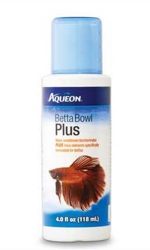
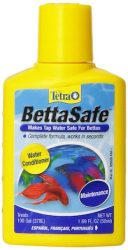

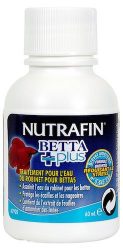



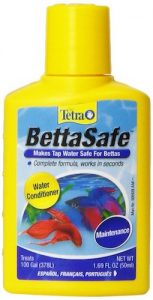

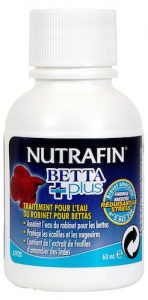

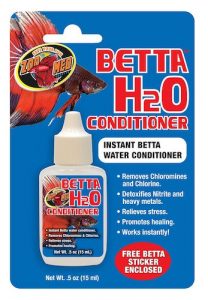
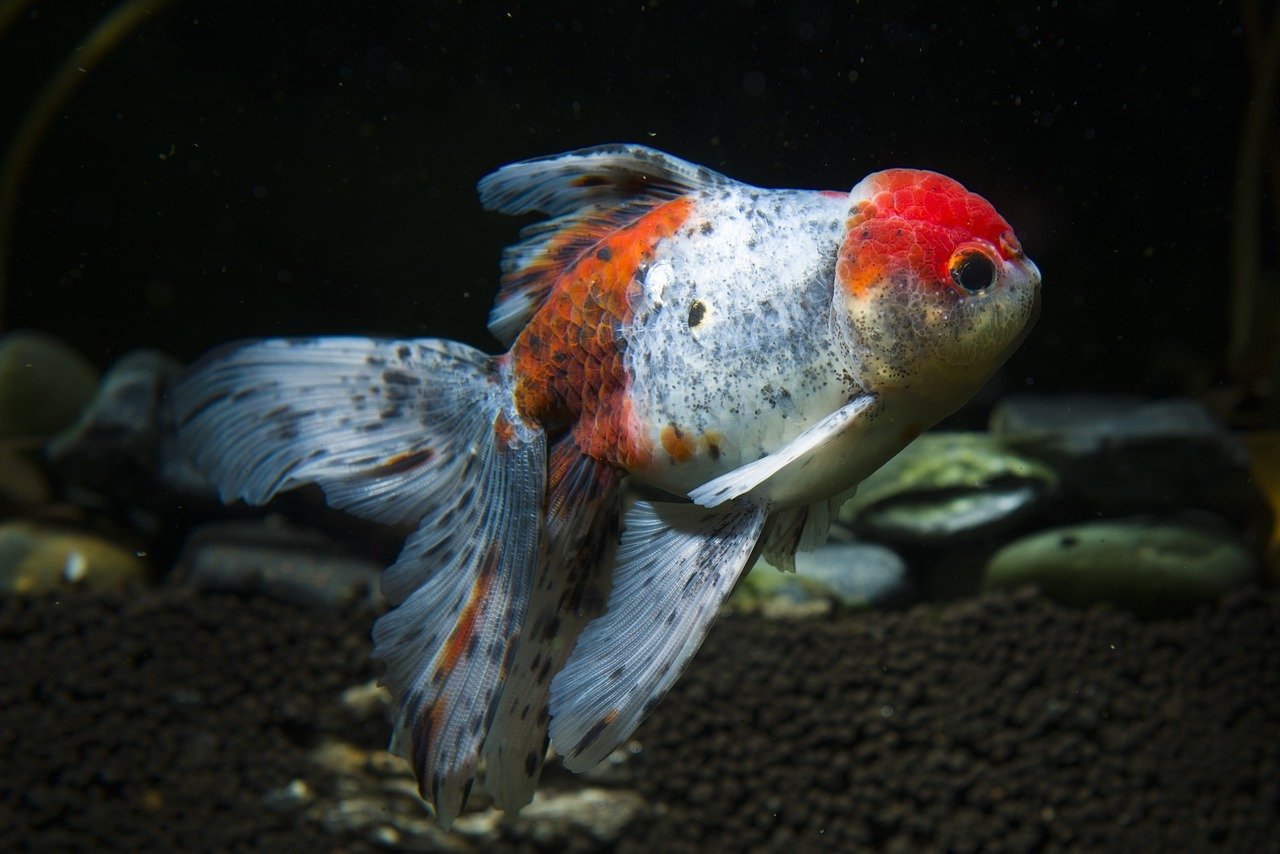
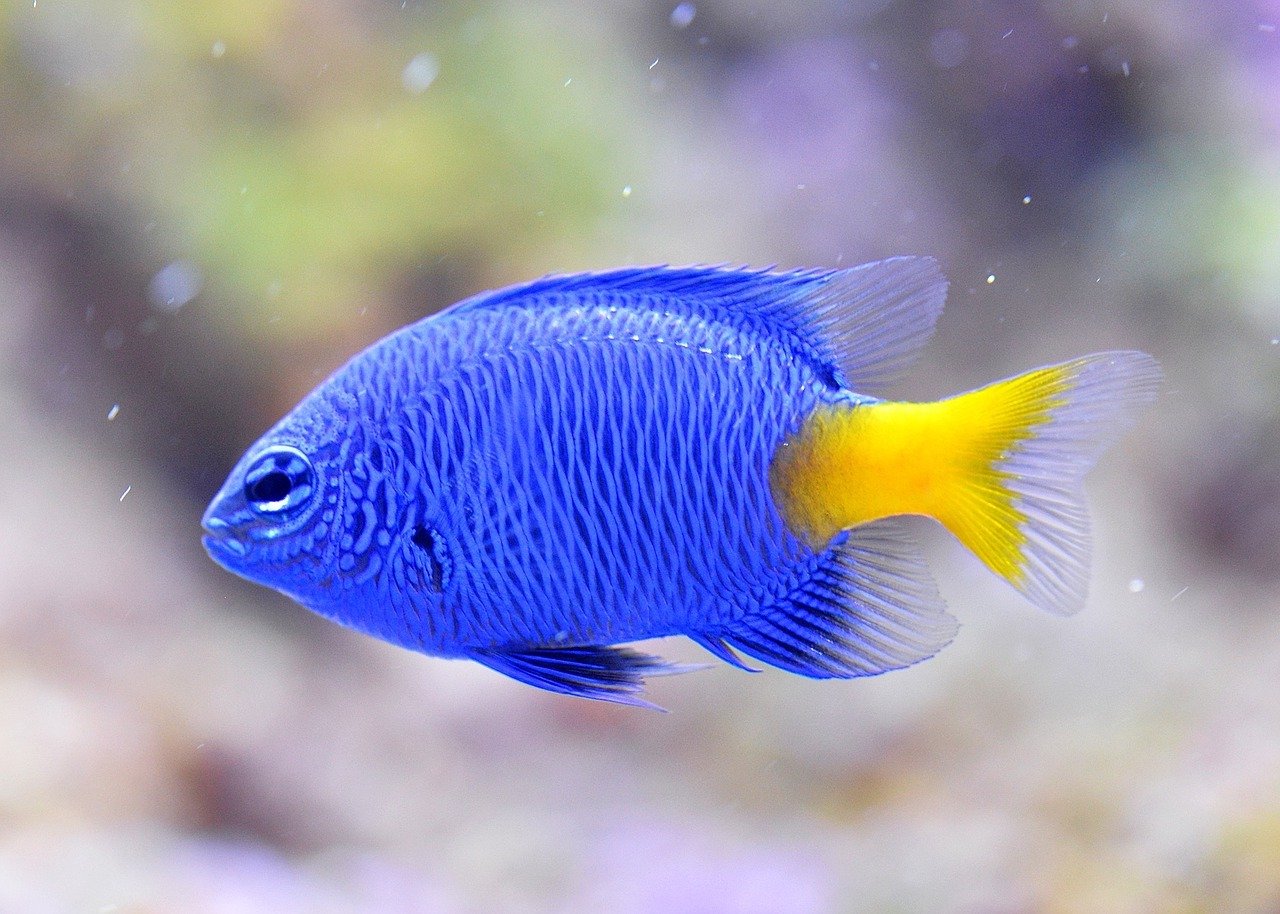
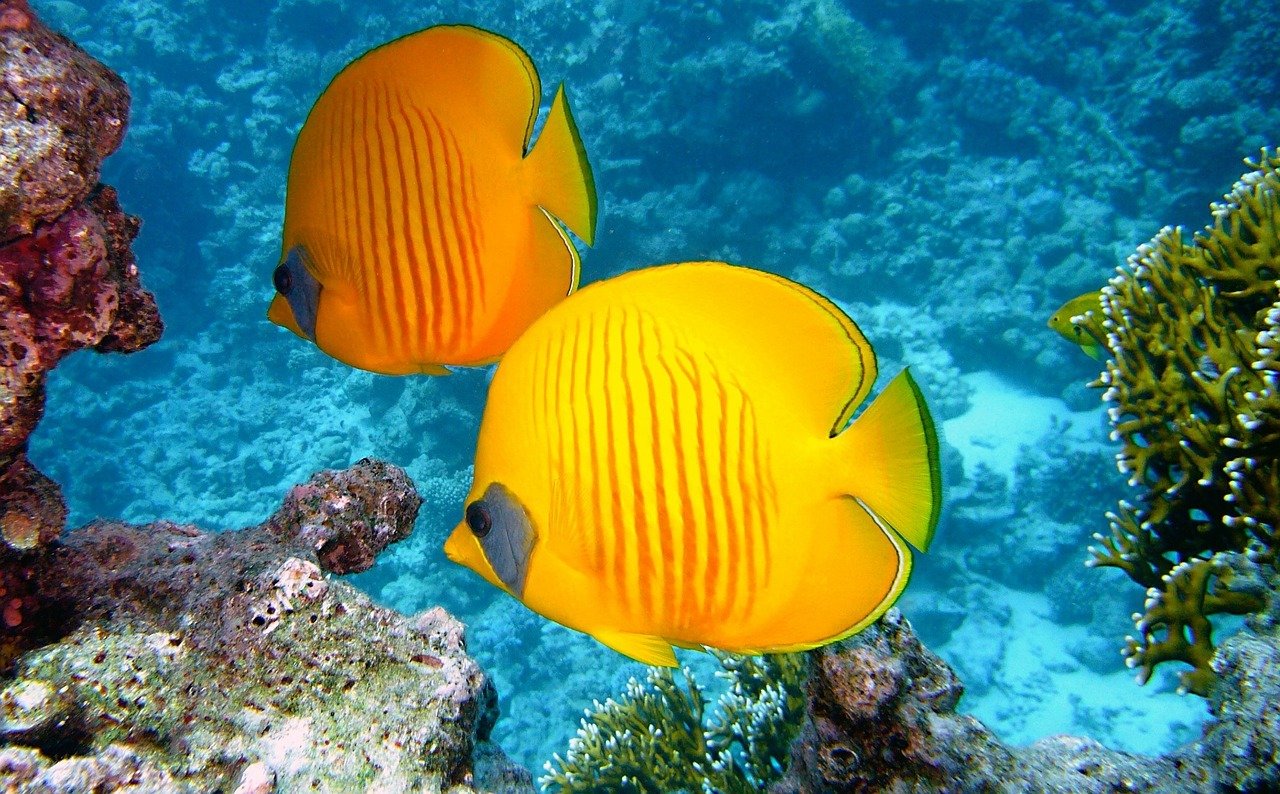
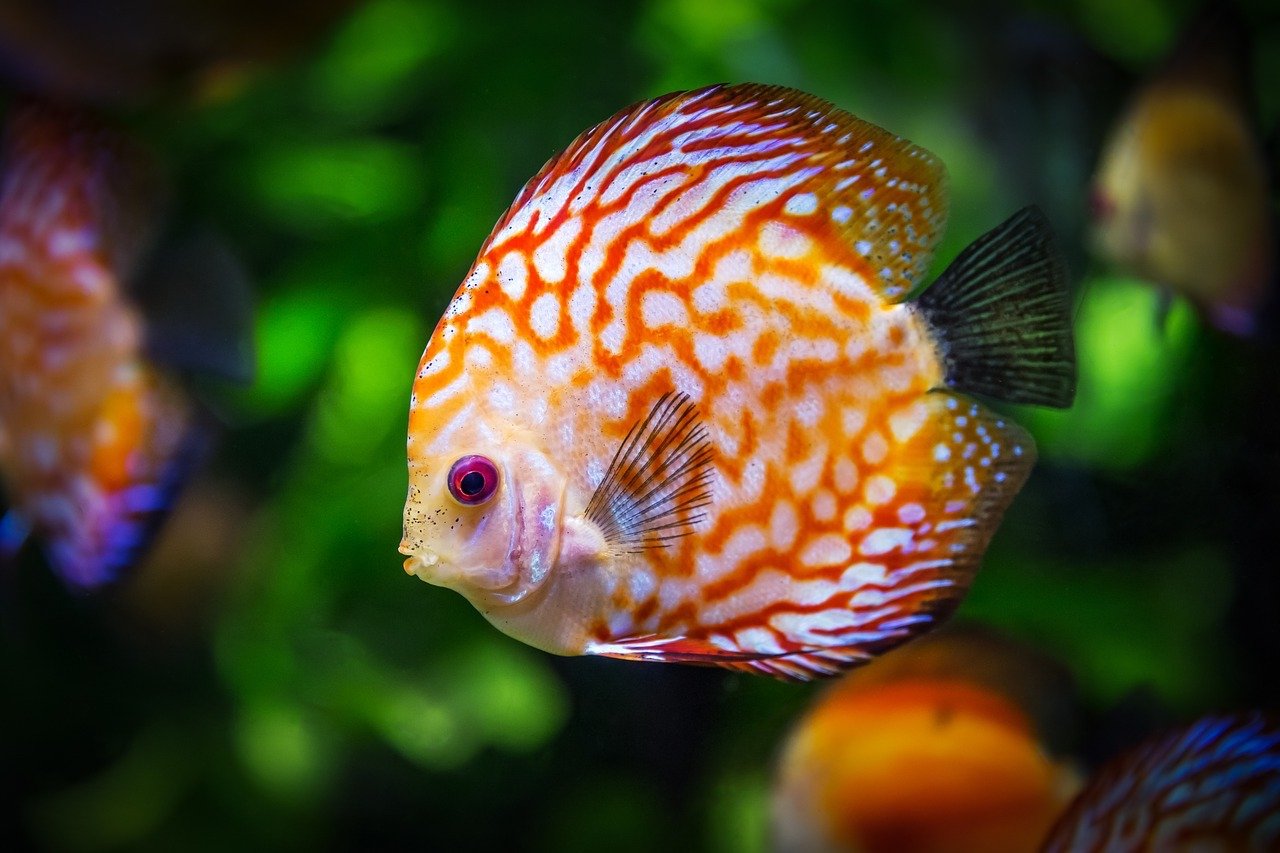
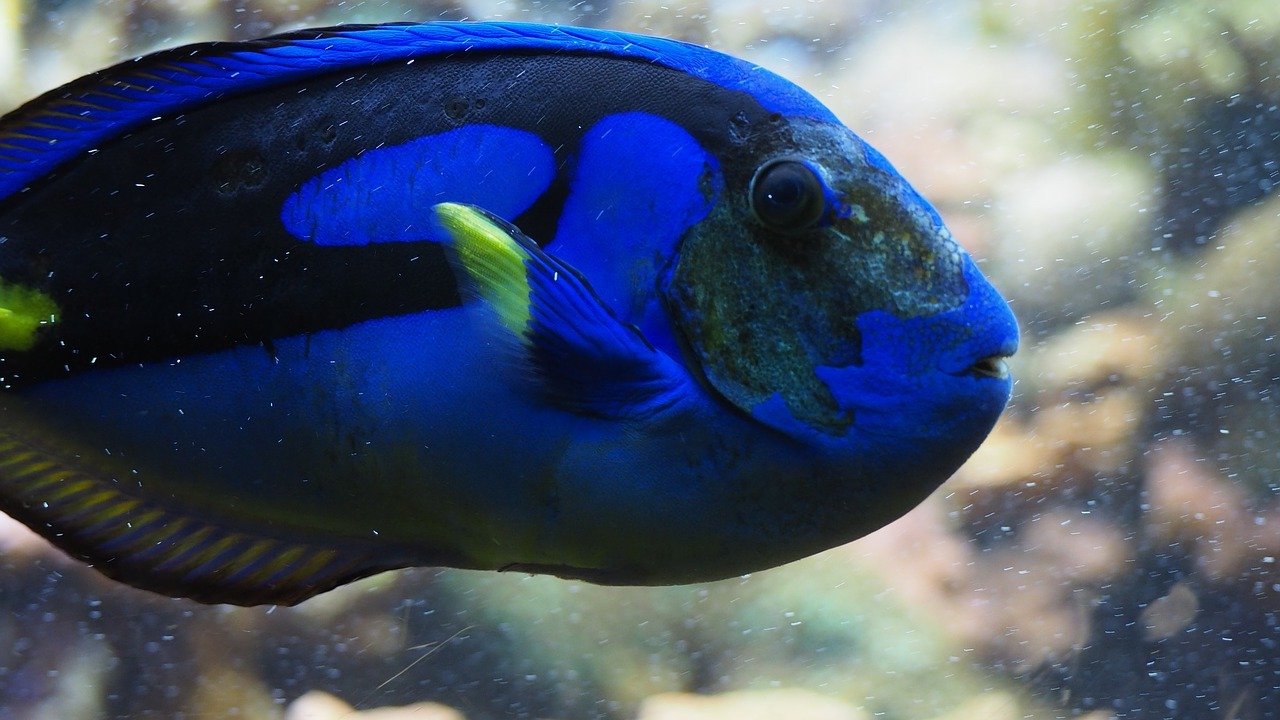

Leave a Reply